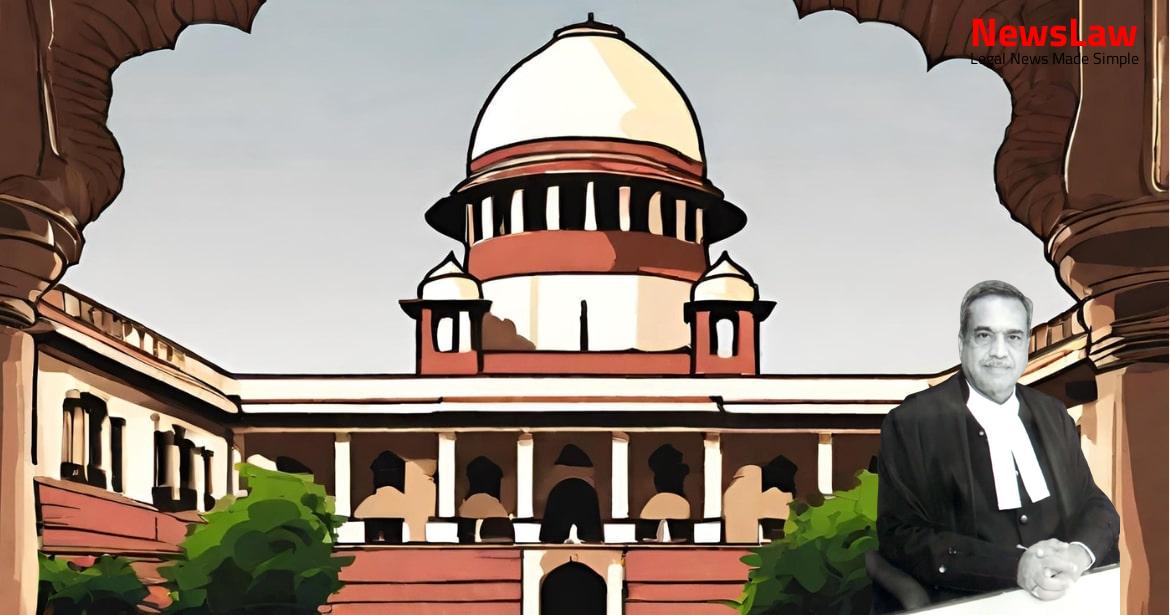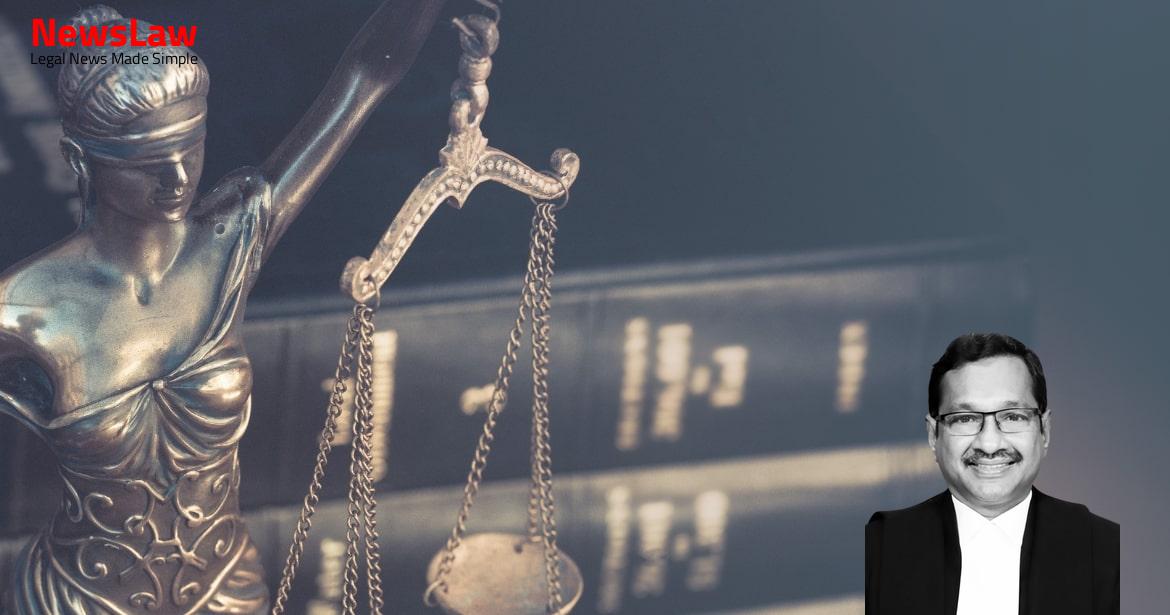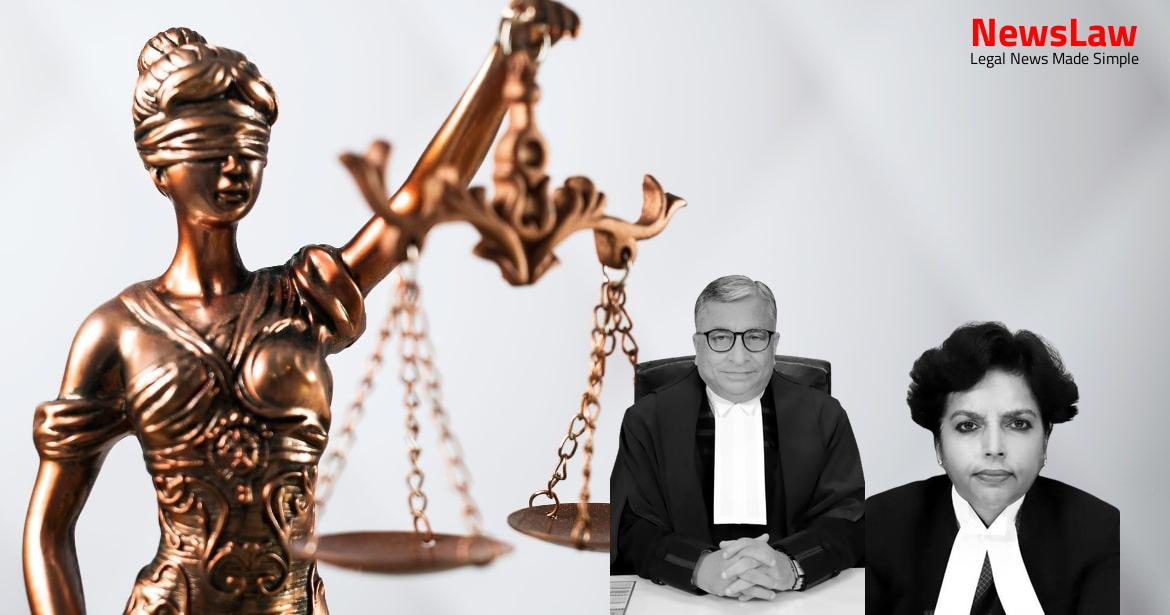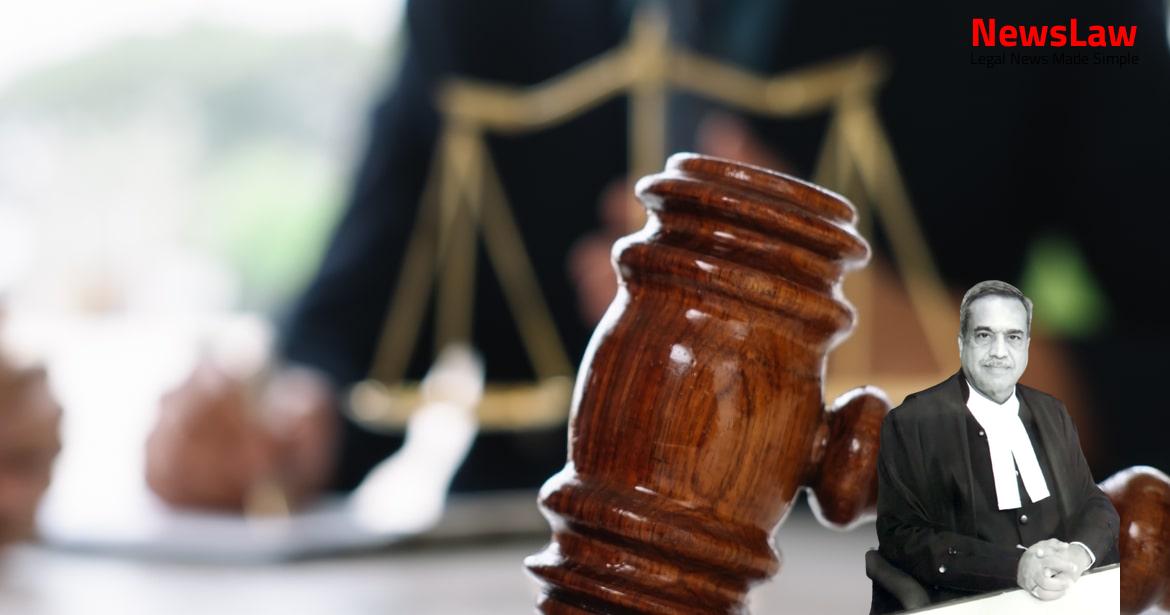Explore the legal nuances of a recent case where individuals were convicted for rioting during elections. The court’s detailed analysis emphasized the significance of safeguarding democracy and ensuring free and fair elections. The case highlighted the challenges of proving individual roles in a large group and the reliance on injured eyewitness testimony to establish guilt. Follow along for a deep dive into the legal aspects of rioting offences in the context of democracy.
Facts
- FIR lodged by first informant Rajeev Ranjan Tiwari on 26.11.1989 at Paatan Police Station.
- Accused persons from another village attacked the first informant with weapons during general elections.
- Accused Dinanath Singh fired a gunshot at the first informant’s brother, causing injuries.
- Chargesheet filed against 15 accused, including the present appellants.
- Case committed to Sessions Court as exclusively triable by that court.
- Prosecution examined 15 witnesses, including injured eye witnesses and a doctor.
- Statements of accused recorded under Section 313 Cr.P.C. where they denied the allegations.
- Accused Ajay Singh convicted for offences under Sections 324 & 148 IPC.
- Appeals filed by appellants against conviction and sentence were dismissed by High Court.
Also Read: Judicial Review of Delayed Writ Petition
Arguments
- The witnesses belong to the same village, which is natural for individuals from different parties to be present at the booth.
- Absence of corroborating evidence for the prosecution’s claim of the appellants causing injuries to PW8.
- The appellants sustained simple injuries, except for PW10 who sustained grievous injuries.
- The High Court mentioned the appellants being guilty under Sections 323 & 147 IPC, but motive was not established.
- All ingredients of rioting under Section 146 IPC were proven.
- All accused were named in the FIR and their involvement was established with reliable evidence.
- Injuries sustained were mainly gunshot wounds, with one witness turning hostile.
- Discrepancies in the recovery of lathis, sticks, and voter slips weaken the prosecution’s case.
- Challenges to the reliability of the witness testimony, especially PW8, who did not visit the injured or show concern.
- Accused individuals’ active participation in the unlawful assembly was emphasized, leading to their culpability in rioting.
- No independent assessment of evidence regarding the appellants’ individual roles.
- The leniency of the trial court in sentencing was critiqued, and calls were made for conviction under additional IPC sections.
- The reliance on witness testimonies of PW8, PW10 & PW5 was criticized for lacking corroboration.
- Citing established precedents, the legal significance of the injured eyewitness testimony was emphasized.
- The success of the prosecution in proving the case against the accused through the injured eyewitnesses.
- Concurrent findings of guilt under Sections 323 & 147 IPC by both trial court and High Court.
- The trial Court showed leniency towards the appellants by sentencing them to only six months of simple imprisonment.
- Interference by this Court is not necessary due to the leniency shown in sentencing.
- Bogus voting undermines the fundamental feature of democracy and impacts the conduct of free and fair elections.
- The case of People’s Union for Civil Liberties v. Union of India established the right of an elector to cast their vote without fear or duress.
- Free and fair elections are considered a basic structure of the Constitution and encompass the right to cast a vote without coercion.
Also Read: Ownership Dispute: Legal Analysis on Admission and Decree
Analysis
- Section 146 of the Indian Penal Code defines the offence of rioting.
- Rioting occurs when an unlawful assembly or any of its members use force or violence in pursuit of the assembly’s common objective.
- Section 147 IPC provides punishment for the offence of rioting.
- For an act to be considered ‘rioting’, there must be an unlawful assembly of 5 or more persons, the assembly must be engaging in force or violence, and the force used must be in furtherance of the common objective of the assembly.
- The definition of ‘force’ is provided in Section 349 IPC, where force is causing motion, change of motion, or cessation of motion to another person.
- In the case at hand, the accused were part of an unlawful assembly with the common intention of snatching voter’s slips and engaging in bogus voting.
- The accused sustained injuries but failed to explain them in their statements.
- All accused are convicted under Section 323 and 147 IPC for six months imprisonment.
- Identification of specific roles for each assailant in a large group can be challenging for witnesses.
- Injury of witnesses during an incident adds reliability to their testimony.
- Every member of an unlawful assembly is guilty of rioting, even if not directly involved in violence.
- The presence and active participation of all accused during the incident were established.
- The court heavily relied on the deposition of independent and injured witnesses in convicting the accused.
- Injuries sustained by witnesses prove the use of force by accused members of the assembly.
- The accused being armed with lathis and the lack of injury report for one witness do not negate their guilt.
- Minor discrepancies in witness statements do not undermine their credibility.
- Non-mention of an eyewitness’s name does not weaken the prosecution’s case.
- Injury reports are not a requirement for proving the offence under Section 323 IPC.
- The trial court imposed a sentence of six months simple imprisonment for the accused.
- Secrecy of casting vote is necessary for strengthening democracy.
- Secrecy is insisted upon in democracies with direct elections to ensure voters can cast their votes without fear of victimization.
- In the case of Ramvilas, it was held that injured witnesses’ evidence carries great weight and strong reasons are needed to discard it.
- A similar view was expressed in the case of Abdul Sayeed, which involved identification of assailants in a crowd.
- The State did not appeal against the imposition of only six months simple imprisonment.
- Elections should ensure freedom of voters to exercise their choice.
- Elections represent the will of the people.
- Booth capturing and bogus voting should be strongly punished as they undermine the rule of law and democracy.
- Protection of the right to free and fair elections is essential.
Also Read: Interpretation of Statutory Limitation under Section 263(2)
Decision
- All the appeals were dismissed as they failed to meet the requirements stated in the judgment.
- The accused-appellants, whose applications for exemption from surrender were previously allowed, must now surrender immediately to serve their sentence.
Case Title: LAKSHMAN SINGH Vs. STATE OF BIHAR (NOW JHARKHAND) (2021 INSC 352)
Case Number: Crl.A. No.-000606-000606 / 2021



